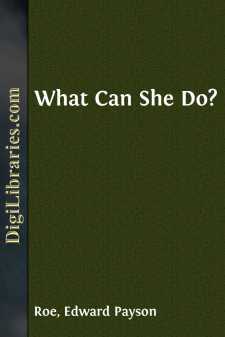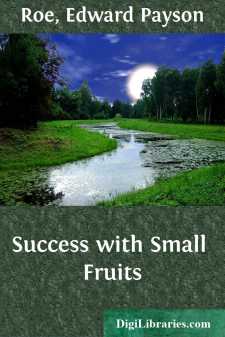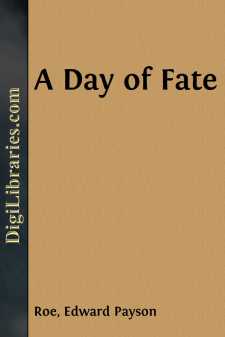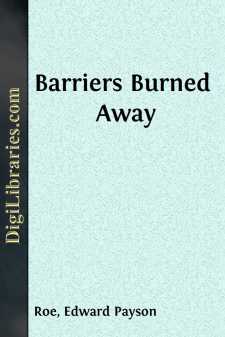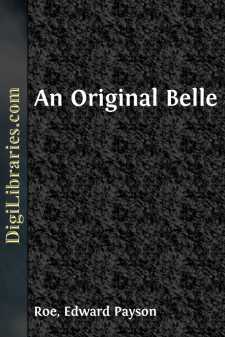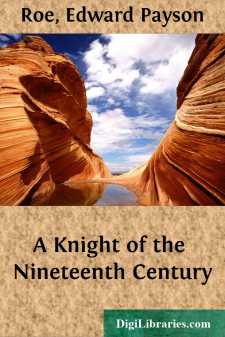Categories
- Antiques & Collectibles 13
- Architecture 36
- Art 48
- Bibles 22
- Biography & Autobiography 813
- Body, Mind & Spirit 142
- Business & Economics 28
- Children's Books 15
- Children's Fiction 12
- Computers 4
- Cooking 94
- Crafts & Hobbies 4
- Drama 346
- Education 46
- Family & Relationships 57
- Fiction 11828
- Games 19
- Gardening 17
- Health & Fitness 34
- History 1377
- House & Home 1
- Humor 147
- Juvenile Fiction 1873
- Juvenile Nonfiction 202
- Language Arts & Disciplines 88
- Law 16
- Literary Collections 686
- Literary Criticism 179
- Mathematics 13
- Medical 41
- Music 40
- Nature 179
- Non-Classifiable 1768
- Performing Arts 7
- Periodicals 1453
- Philosophy 64
- Photography 2
- Poetry 896
- Political Science 203
- Psychology 42
- Reference 154
- Religion 513
- Science 126
- Self-Help 84
- Social Science 81
- Sports & Recreation 34
- Study Aids 3
- Technology & Engineering 59
- Transportation 23
- Travel 463
- True Crime 29
Edward Payson Roe
Edward Payson Roe was a popular 19th-century American novelist and Presbyterian minister known for his sentimental and moralistic novels. Born on March 7, 1838, in New Windsor, New York, he gained widespread fame with works such as "Barriers Burned Away" and "Opening a Chestnut Burr." His novels often dealt with themes of love, faith, and redemption, resonating deeply with his contemporary audience.
Author's Books:
Sort by:
CHAPTER I. A PRACTICAL JOKE. On a cloudy December morning a gentleman, two ladies, and a boy stepped down from the express train at a station just above the Highlands on the Hudson. A double sleigh, overflowing with luxurious robes, stood near, and a portly coachman with difficulty restrained his spirited horses while the little party arranged themselves for a winter ride. Both the ladies were young,...
more...
CHAPTER I THREE GIRLS It was a very cold blustering day in early January, and even brilliant thronged Broadway felt the influence of winter's harshest frown. There had been a heavy fall of snow which, though in the main cleared from the sidewalks, lay in the streets comparatively unsullied and unpacked. Fitful gusts of the passing gale caught it up and whirled it in every direction. From roof,...
more...
CHAPTER I A PROBLEM "Where are the children?" "They can't be far away," replied my wife, looking up from her preparations for supper. "Bobsey was here a moment ago. As soon as my back's turned he's out and away. I haven't seen Merton since he brought his books from school, and I suppose Winnie is upstairs with the Daggetts." "I wish, my dear, you could...
more...
PREFACE A book should be judged somewhat in view of what it attempts. One of the chief objects of this little volume is to lure men and women back to their original calling, that of gardening. I am decidedly under the impression that Eve helped Adam, especially as the sun declined. I am sure that they had small fruits for breakfast, dinner and supper, and would not be at all surprised if they ate some...
more...
Left Alone The dreary March evening is rapidly passing from murky gloom to obscurity. Gusts of icy rain and sleet are sweeping full against a man who, though driving, bows his head so low that he cannot see his horses. The patient beasts, however, plod along the miry road, unerringly taking their course to the distant stable door. The highway sometimes passes through a grove on the edge of a forest,...
more...
CHAPTER I AIMLESS STEPS "Another month's work will knock Morton into 'pi,'" was a remark that caught my ear as I fumed from the composing-room back to my private office. I had just irately blamed a printer for a blunder of my own, and the words I overheard reminded me of the unpleasant truth that I had recently made a great many senseless blunders, over which I chafed in...
more...
"I am getting very tired," said a hard brain-worker to me once. "Life is beginning to drag and lose its zest." This is an experience that can scarcely happen to one who has fallen in love with Nature, or become deeply interested in any of her almost infinite manifestations. Mr. and Mrs. Clifford of my story are not wholly the creations of fancy. The aged man sketched in the following...
more...
CHAPTER I LOVE UNKNOWN From its long sweep over the unbroken prairie a heavier blast than usual shook the slight frame house. The windows rattled in the casements, as if shivering in their dumb way in the December storm. So open and defective was the dwelling in its construction, that eddying currents of cold air found admittance at various points—in some instances carrying with them particles of the...
more...
No race of men, scarcely an individual, is so devoid of intelligence as not to recognize power. Few gifts are more courted. Power is almost as varied as character, and the kind of power most desired or appreciated is a good measure of character. The pre-eminence furnished by thew and muscle is most generally recognized; but, as men reach levels above the animal, other qualities take the lead. It is...
more...
CHAPTER I BAD TRAINING FOR A KNIGHT Egbert Haldane had an enemy who loved him very dearly, and he sincerely returned her affection, as he was in duty bound, since she was his mother. If, inspired by hate and malice, Mrs. Haldane had brooded over but one question at the cradle of her child, How can I most surely destroy this boy? she could scarcely have set about the task more skilfully and...
more...



